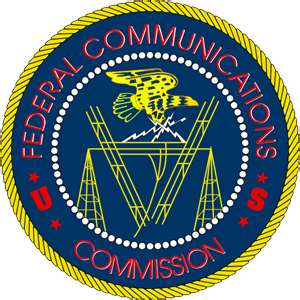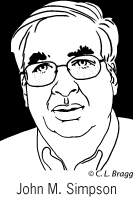 The Federal Communications Commission looks like it means business when it comes to enforcing open Internet rules. It just slapped AT&T with a whopping $100 million fine, one of the largest ever, for improperly slowing, or “throttling” Internet speeds for people who purchased what the company had described as “unlimited” data plans.
The Federal Communications Commission looks like it means business when it comes to enforcing open Internet rules. It just slapped AT&T with a whopping $100 million fine, one of the largest ever, for improperly slowing, or “throttling” Internet speeds for people who purchased what the company had described as “unlimited” data plans.
The FCC’s new open Internet rules took effect last Friday. This action is based on an apparent violation of transparency rules that have been in effect since 2011, but it certainly sent the message that the Commission intends to be tough going forward.
Now, what needs to happen is that Commission must extend privacy protections beyond broadband Internet access providers to cover Internet companies like Google, Facebook and Yahoo! That is precisely what Consumer Watchdog’s formal petition filed on Monday seeks.
The AT&T fine is interesting because it demonstrates what I think is a genuine commitment on the part of the FCC to protect consumers. I expect they’ll be just as vigorous enforcing the new open Internet rules.
Here’s what happened in the AT&T case. Back in 2010 the FCC issued open Internet rules to protect “net neutrality.” Verizon sued and the court decided that most of the rules treated broadband Internet access providers as if they were common carriers. The FCC couldn’t do that, the court ruled, because it had classified them as “information services.” Since then the FCC has reclassified the broadband Internet access providers as common carries, like the telephone company, and issued new rules prohibiting blocking, throttling and paid prioritization. Naturally, there is another court challenge.
One rule that the court left standing in the Verizon case was its transparency rule requiring companies to provide accurate information about data speeds and services offered. And that’s where AT&T has run into trouble.
It called its plan “unlimited,” but AT&T capped the maximum data speeds for unlimited customers after they used a set amount of data within a billing cycle. The capped speeds were much slower than the normal network speeds AT&T advertised and significantly impaired the ability of AT&T customers to access the Internet or use data applications for the remainder of the billing cycle.
The FCC Enforcement Bureau’s investigation revealed that millions of AT&T customers were affected, the FCC said. The customers who were subject to speed reductions were slowed for an average of 12 days per billing cycle, significantly impeding their ability to use common data applications such as GPS mapping or streaming video.
The FCC said it found that the notice provided to unlimited data plan customers about the Maximum Bit Rate policy was not sufficient to enable AT&T customers to make informed decisions about their data plans.
“Consumers deserve to get what they pay for,” said FCC Chairman Tom Wheeler. “Broadband providers must be upfront and transparent about the services they provide. The FCC will not stand idly by while consumers are deceived by misleading marketing materials and insufficient disclosure.”
 “Unlimited means unlimited,” said FCC Enforcement Bureau Chief Travis LeBlanc. “As today’s action demonstrates, the Commission is committed to holding accountable those broadband providers who fail to be fully transparent about data limits.”
“Unlimited means unlimited,” said FCC Enforcement Bureau Chief Travis LeBlanc. “As today’s action demonstrates, the Commission is committed to holding accountable those broadband providers who fail to be fully transparent about data limits.”
Most important about Wednesday’s action to everyone other than AT&T, which plans to vigorously fight the fine, is the message it sends about the Commission’s future intentions to be tough on violations of open Internet rules.
Now, the next thing the FCC must do if it’s serious about protecting consumers is grant Consumer Watchdog’s petition and require Internet companies, known as edge providers, like Google, Facebook, Netflix and Yahoo! to honor Do Not Track requests.









